When you hear the name JD Vance, images of rural Ohio, the best-selling memoir Hillbilly Elegy, and the rough-and-tumble world of U.S. politics may come to mind. But what if we told you that JD Vance — yes, the U.S. Senator from Ohio — recently made headlines for a trip not in Appalachia or Washington, D.C., but in India? Yes, you read that right. JD Vance in India is not just an intriguing phrase—it’s a story filled with curiosity, culture, politics, and the kind of unexpected global outreach that could shape future diplomacy.
Let’s dive into why JD Vance’s presence in India is sparking curiosity and what it could mean for U.S.-India relations, tech partnerships, and the global narrative of rising powers.
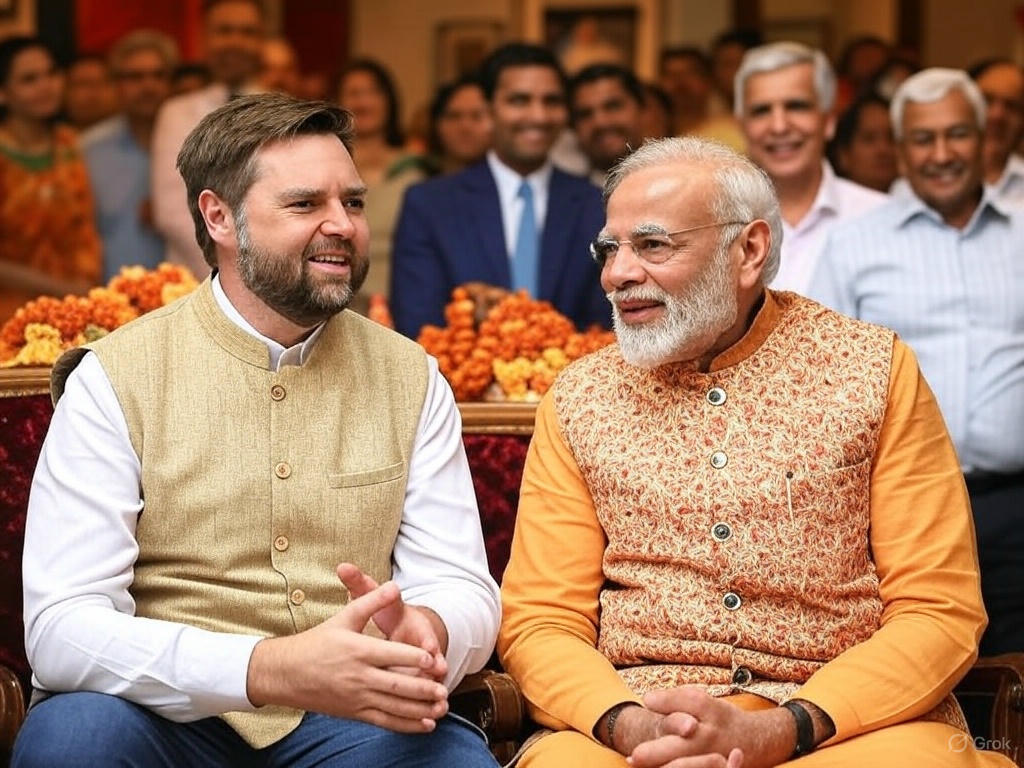
Why JD Vance’s India Visit Caught Everyone Off Guard
JD Vance is not your usual globetrotting politician. A self-proclaimed nationalist with deep roots in Middle America, his core base doesn’t typically prioritize international relations, especially not with faraway countries like India. But that’s precisely what makes his visit so newsworthy.
So, what was JD Vance doing in India?
Reports (still unofficial, yet buzzing on social platforms) suggest he was in Bangalore and New Delhi—two contrasting epicenters of India’s identity: one known for its booming tech industry, the other for its political pulse.
And while there has been no formal press conference (yet), his movements have not gone unnoticed. A few sharp-eyed Twitter users spotted him visiting Indian startups, engaging with young entrepreneurs, and even quietly attending a cultural event in Varanasi. The internet, naturally, went into speculation overdrive.
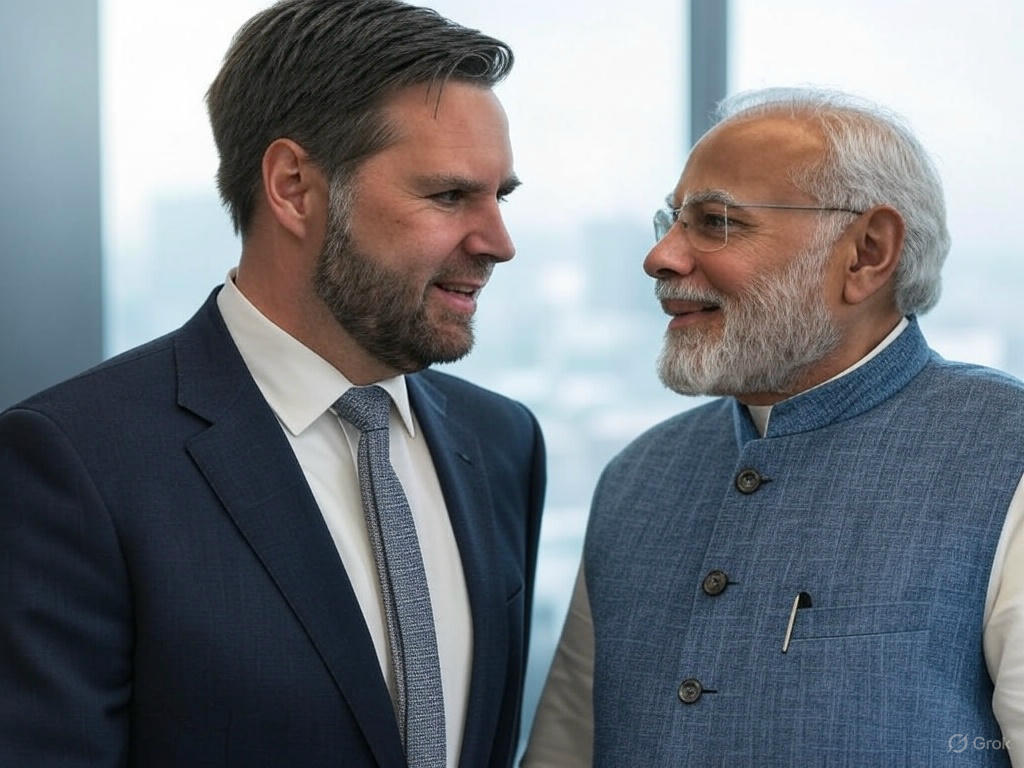
Behind the Scenes: What Was the Purpose of JD Vance’s Trip?
While the official reason behind his visit hasn’t been disclosed publicly, there are a few theories that hold weight:
1. Tech Talks and Silicon Valley-to-Bangalore Bridge
JD Vance has long had ties to Silicon Valley. Before becoming a senator, he worked in venture capital and has consistently expressed interest in technology, innovation, and entrepreneurship. A visit to India’s Silicon Valley (Bangalore) might be his way of exploring deeper tech partnerships or understanding how American VCs are investing in Indian startups.
Could JD Vance be the new political face of global tech diplomacy? It’s a valid question—especially with the rise of AI, data security concerns, and a shifting global tech landscape.

2. Geopolitical Chess: Countering China Through India
There’s a growing narrative in U.S. foreign policy: counterbalance China by strengthening ties with India. JD Vance, despite his “America First” outlook, might be seeing India as a strategic partner to reshape trade, defense, and technological balance in the Asia-Pacific region.
A quiet, semi-private visit could be a step toward informal diplomacy—an approach increasingly common in the post-COVID political era.
3. Cultural Curiosity or Strategic Symbolism?
Interestingly, Vance was also reportedly seen at a Ganga Aarti ceremony in Varanasi—a spiritual event attended by millions. Some see this as a symbolic gesture to connect with India’s rich culture. But others wonder: was this purely personal, or does it hint at a broader effort to build soft power alliances?
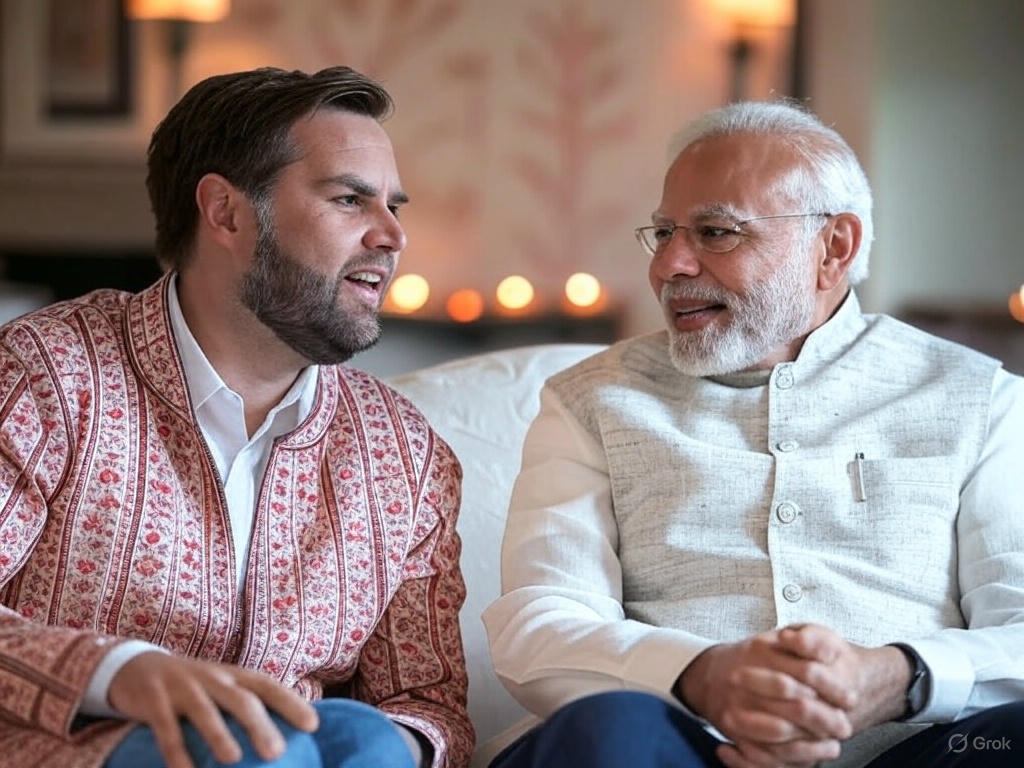
Social Media Reacts: “JD Vance in India? Wait, What?”
The hashtag #JDVanceInIndia trended briefly on Twitter (now X), as users shared images, speculations, and memes about the American Senator’s low-key trip. Here are some fun and insightful takes:
- “Plot twist: JD Vance is starting his spiritual tech startup journey in Bangalore.”
- “Is JD Vance the next Marco Polo or just on a mission to eat butter chicken?”
- “From Appalachia to Ahmedabad? The world really is flat.”
And then, of course, came the geo-political analysts:
- “Vance’s visit to India signals a new chapter in populist conservative outreach to rising democracies.”
Whether serious or satirical, social media has already built a story around this mysterious tour.
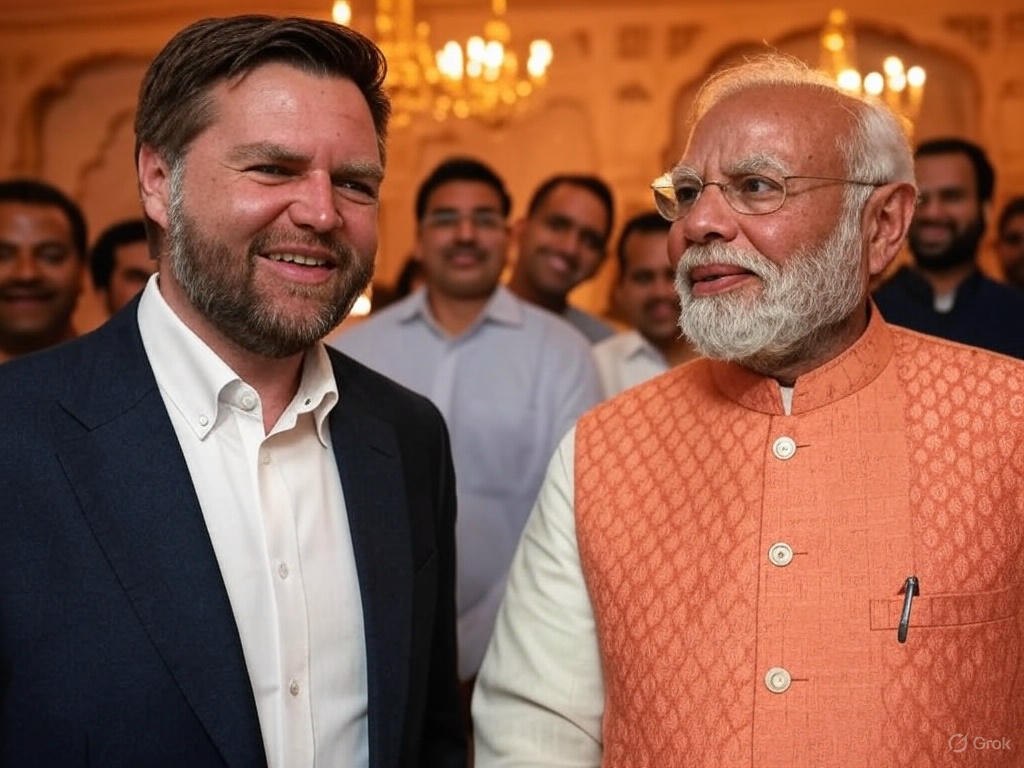
What This Means for U.S.-India Relations
While it’s easy to brush off a politician’s overseas trip as routine, this one feels different. Here’s why:
1. The Rise of Non-Traditional Diplomats
Unlike traditional figures like Joe Biden or Antony Blinken, JD Vance represents a new breed of U.S. leadership—blunt, anti-establishment, and rooted in domestic populism. His visit might mark a shift in how America communicates with global powers, moving from formal diplomacy to more informal, one-on-one interactions.
2. Soft Power Moves: Embracing India’s Cultural and Entrepreneurial Identity
Vance’s interest in India’s culture and business community suggests that America is beginning to see India not just as a strategic partner, but as an ideological ally in a divided global order—where shared values of democracy, innovation, and national pride matter more than ever.
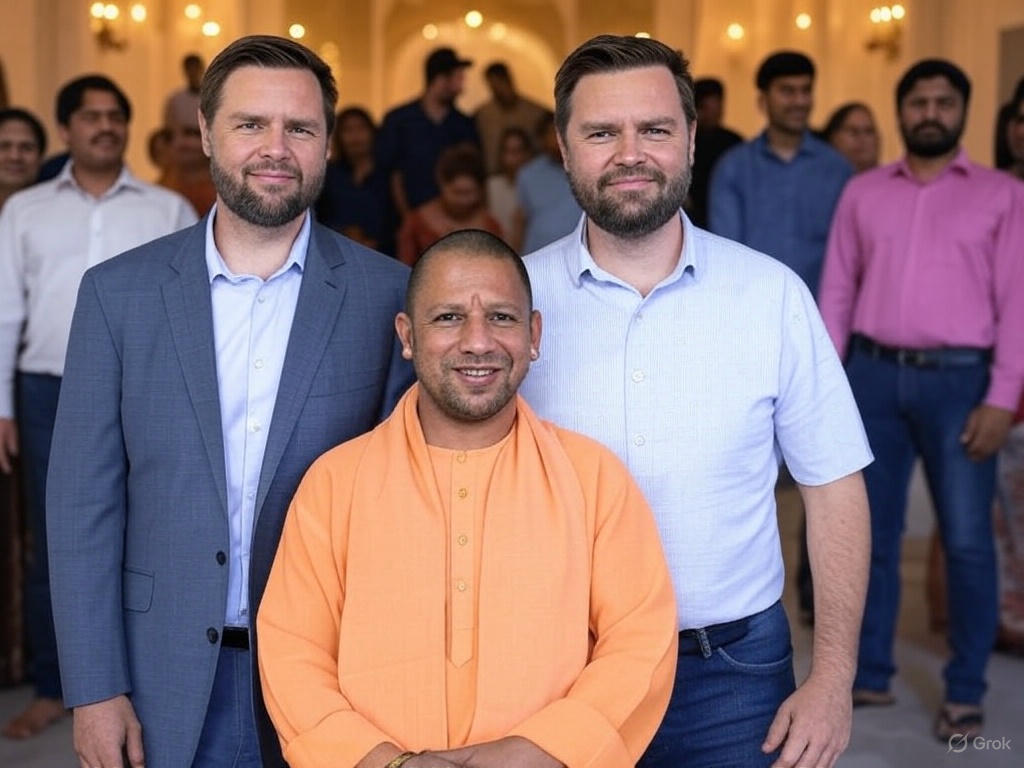
3. A Signal to the Indian-American Diaspora
With over 4 million Indian-Americans in the U.S., many of whom are influential in tech, medicine, and academia, JD Vance’s move could be politically strategic. A subtle nod to this community could help expand his base or support future bipartisan tech or education initiatives.
Could This Visit Be the Start of a Bigger Political Shift?
Here’s a thought-provoking theory: JD Vance is positioning himself not just as an American senator, but as a global conservative voice. In an age where populism and nationalism are gaining momentum worldwide—from Trump to Modi—Vance could be laying the groundwork for an international movement of like-minded leaders.
Whether or not he plans to run for President in 2028, his India trip feels like more than tourism—it feels like a calculated step in a much larger game.
Final Thoughts: The Unexpected Tale of JD Vance in India
When JD Vance first penned Hillbilly Elegy, no one expected him to be a major political figure—let alone one making mysterious visits to India. And yet, here we are.
The story of JD Vance in India is still unfolding. But one thing’s clear: it’s not just about a visit—it’s about a vision. A vision where the next era of global politics might not be shaped in the marble halls of Washington or the G20 summits, but in the tech campuses of Bangalore, the ghats of Varanasi, and through quiet conversations across continents.
Reed More….


